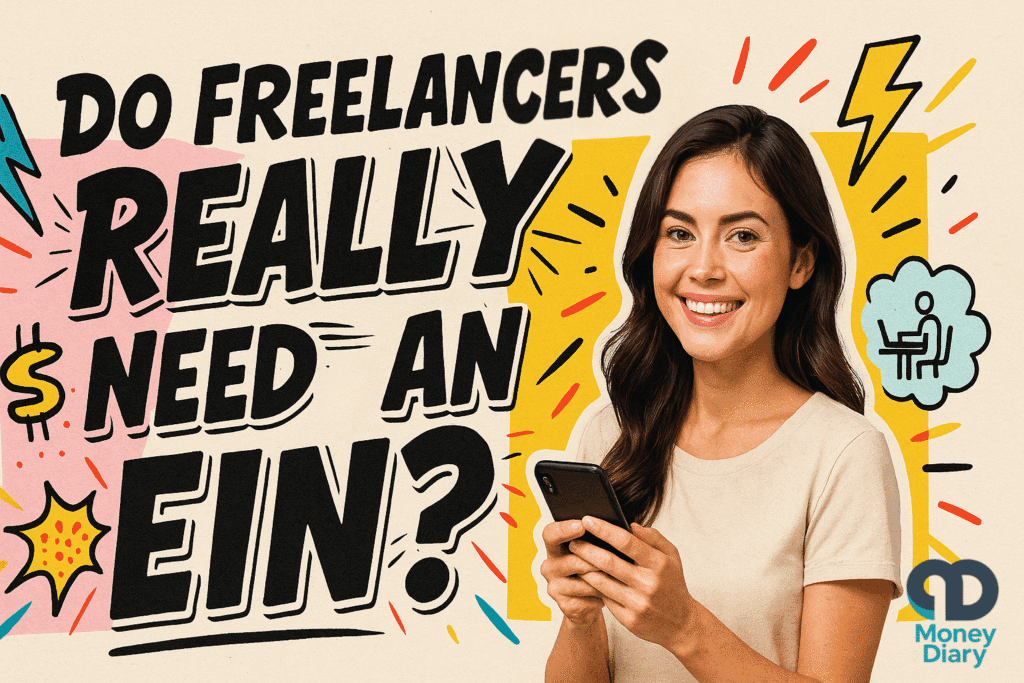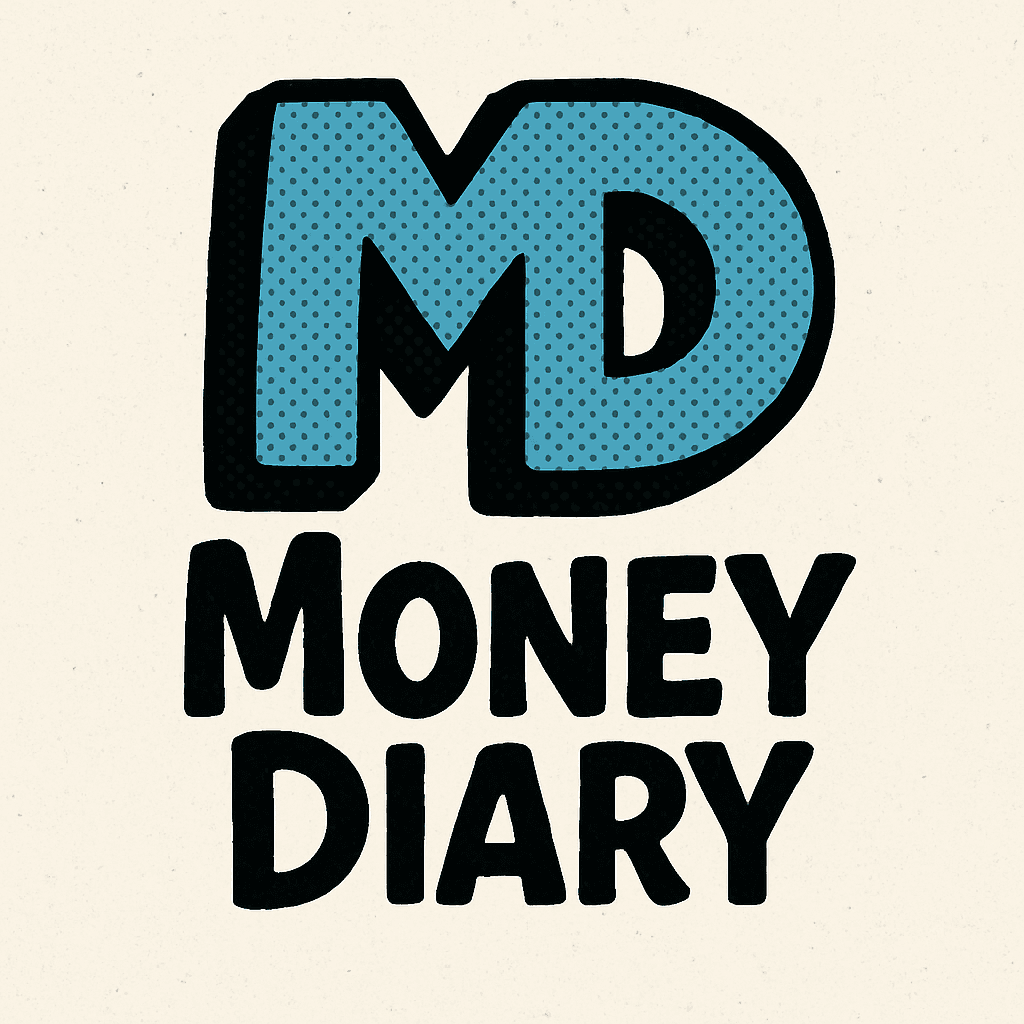
Protect your identity, save on taxes, and set your side hustle up for growth.
Quick Summary / Key Takeaways
- Freelancers are not legally required to get an EIN, but it’s highly recommended.
- An EIN is free and takes about 15 minutes to apply for online.
- You can get one as a sole proprietor—no LLC required.
- An EIN protects your SSN, helps open business bank accounts, and looks professional to clients.
- Many freelancers form an LLC around $10K/year and consider an S-Corp at $30K–$40K/year for tax savings.
Stats Snapshot: EIN vs SSN
| Feature | EIN (Employer Identification Number) | SSN (Social Security Number) |
| Cost | ✅ Free (IRS.gov) | ❌ N/A |
| Application Time | ✅ ~15 minutes online | ❌ N/A |
| Privacy Protection | ✅ Keeps SSN hidden from clients | ❌ Shared on every W9 |
| Business Bank Account Setup | ✅ Typically required | ❌ Usually not accepted |
| Professional Image | ✅ Looks official to clients | ❌ Feels personal |
| Tax Benefits | ✅ Required for LLC/S-Corp deductions | ❌ Limited as sole prop |
| Platform Use (PayPal, Upwork, Stripe) | ✅ Accepted everywhere | ❌ Uses personal SSN |
Execution Checklist: How to Get an EIN
- Go to IRS.gov EIN Assistant.
- Select “sole proprietor” (or LLC if already formed).
- Fill out the form (takes ~15 minutes).
- Save your confirmation letter (digital + paper copy).
- Update platforms (PayPal, Stripe, Upwork) and W9 forms with your new EIN.
Advanced Checklist (For Growth)
- Open a business bank account using your EIN.
- Use your EIN on invoices, tax forms, and contracts.
- Apply for business credit cards to build credit.
- Consider an LLC once income hits ~$10K for professionalism + liability protection.
- Consider an S-Corp once income hits ~$30K–$40K for self-employment tax savings.
- Track write-offs (internet, equipment, software, home office).
- Always consult with a CPA before entity changes.
Intro: Why EINs Matter for Side Hustlers
Starting side gigs is exciting—until someone hands you a W9. Do you write down your Social Security Number and send it off? Or do you protect yourself with an EIN?
When I started freelancing, I didn’t think much about it. I used my SSN because it was easy. But as I started earning more—eventually around $40K—I realized it wasn’t sustainable. That’s when I set up an LLC with S-Corp status, and the EIN became my new best friend.
Here’s the truth: you don’t need an LLC to get an EIN. You can apply as a sole proprietor. It’s free, it only takes a few minutes, and it saves you from giving your SSN to strangers. Later, if you scale into an LLC or S-Corp, your EIN becomes the foundation for tax advantages.
In my state, business registration costs about $100/year, plus around $250 in filing fees. Tax prep runs a little higher for S-Corp returns. But if your side hustle makes more than that, the tax write-offs (internet, laptop, software, part of your home) pay for it many times over.
Bottom line: whether you’re making $500 or $50,000, protecting yourself with an EIN is one of the easiest, smartest steps you can take.
Table of Contents
FAQs Section
Do I Legally Need an EIN as a Freelancer?
Most freelancers don’t legally need an EIN—you can file taxes with just your SSN. But here’s the catch: every time you hand over your SSN on a W9, you’re exposing yourself to risk. Data breaches happen. Emails get hacked. And once your SSN is floating around, identity theft can wreck your credit, bank accounts, even tax filings.
An EIN solves that problem. It’s a free business identifier issued by the IRS that acts like a shield for your SSN. Clients, platforms, and banks see you as more professional, while your personal details stay private.
Case in point: a freelance writer in New York had their SSN stolen after emailing it to a client. Cleaning up the mess took over a year. With an EIN, they could have avoided the exposure entirely.
Takeaway: You don’t have to get one, but you’ll wish you did once you start filling out client forms.
Can I Get an EIN Without an LLC?
Yes—you can apply for an EIN as a sole proprietor, even without an LLC or registered business. This is where many side hustlers get confused. It’s not “chicken or egg.” You don’t need to form a company first—you can grab your EIN now, and upgrade later if you form an LLC or S-Corp.
I did exactly this when I first started freelancing. No business entity, just me working gigs. My EIN was still valid and perfectly acceptable on W9s. When I later formed an LLC and elected S-Corp status, I applied for a new EIN for that entity.
Takeaway: Don’t wait. Protect yourself with an EIN today—even if your business structure evolves later.
How Do I Apply for an EIN?
The fastest and only legitimate way is through the IRS website. It’s free. Don’t fall for shady sites charging $75–$200 for what takes 15 minutes.
Here’s how:
- Go to IRS.gov EIN Assistant.
- Choose “sole proprietor” if you don’t have a company yet.
- Fill out the form with your details.
- Download your confirmation letter immediately.
Stat: In 2023, the IRS issued over 5.4 million EINs to small businesses and freelancers. You’ll be one of them.
Takeaway: Apply directly at IRS.gov—it’s quick, free, and safer than exposing your SSN.
Can I Use an EIN on PayPal, Stripe, Upwork, or Fiverr?
Yes. These platforms often require a tax ID, and they all accept EINs. Using your EIN instead of SSN adds a layer of privacy and helps avoid account freezes.
Example: I had a PayPal account frozen until I verified tax details. Adding my EIN resolved it in less than 24 hours. Many freelancers on Upwork and Etsy report the same thing.
Pro tip: Update your EIN across all platforms at once—saves you from scrambling during tax season.
Takeaway: An EIN isn’t just for the IRS—it keeps your online payment platforms running smoothly.
Does an EIN Save Me Money on Taxes?
Not directly. An EIN by itself won’t reduce your taxes. But it’s the ticket you need if you want to set up an LLC or S-Corp, where the real savings kick in.
- LLC: Many freelancers consider forming one once they’re consistently earning around $10K+ per year. At that point, the small annual fees (often $100–$300 depending on your state) are worth the professionalism and liability protection.
- S-Corp: This status usually makes sense later, once your net income hits around $30K–$40K annually. That’s when the self-employment tax savings typically outweigh the extra costs (extra tax return, payroll service, CPA fees).
Example: A freelancer earning $12K a year might save little on taxes with an S-Corp, but forming a simple LLC keeps their SSN off contracts and provides liability protection. Another freelancer earning $50K could save $3K–$5K a year with an S-Corp election—enough to justify the extra admin costs.
Takeaway: Think of your EIN as the starter key. At around $10K, you can use it to open the door to an LLC. At $30K–$40K, it can unlock S-Corp tax advantages.
What’s the Difference Between EIN and SSN for Freelancers?
An SSN identifies you. An EIN identifies your business activity. Using your SSN blurs those lines and exposes personal info. An EIN creates separation—professional, financial, and psychological.
Real story: I used to write my SSN on every client W9. It felt invasive. Once I switched to my EIN, I felt instantly more professional—like I was running a business, not just a side gig. Clients treated me differently, too.
Takeaway: An EIN is like armor—it shields you while giving your business more credibility.
Advanced Tips / Best Practices
- Store your EIN confirmation letter in 2 places (cloud + physical).
- Add EIN to invoices—it shows clients you’re serious.
- Use EIN to build business credit.
- Consider an LLC once income hits ~$10K.
- Consider S-Corp once income hits ~$30K–$40K.
- Always check with a tax professional.
Where to Learn More
Want to set up your freelance business the smart way? Click here to go back to the Money Diary homepage.
Wrap-Up
You don’t need an EIN to freelance. But if you want privacy, protection, and room to grow—it’s one of the best free moves you’ll ever make. In 15 minutes, you can stop giving out your SSN and start running your hustle like a real business.
Click here to learn more about protecting your income and scaling online.
Author Bio
I’ve been through the side gig grind, the leap to full-time, and eventually forming an LLC with S-Corp status. Along the way, I’ve navigated tax filings, payment platforms, and client contracts that taught me one thing: protecting yourself early makes growth easier later.
I’m Kelly, founder of Money Diary, where I share practical strategies for building online income streams without the fluff. From SaaS to herbal wellness to freelance contracts, I’ve seen what works and what doesn’t. My goal is simple: help freelancers and side hustlers earn more while staying safe and professional.


Leave a Reply